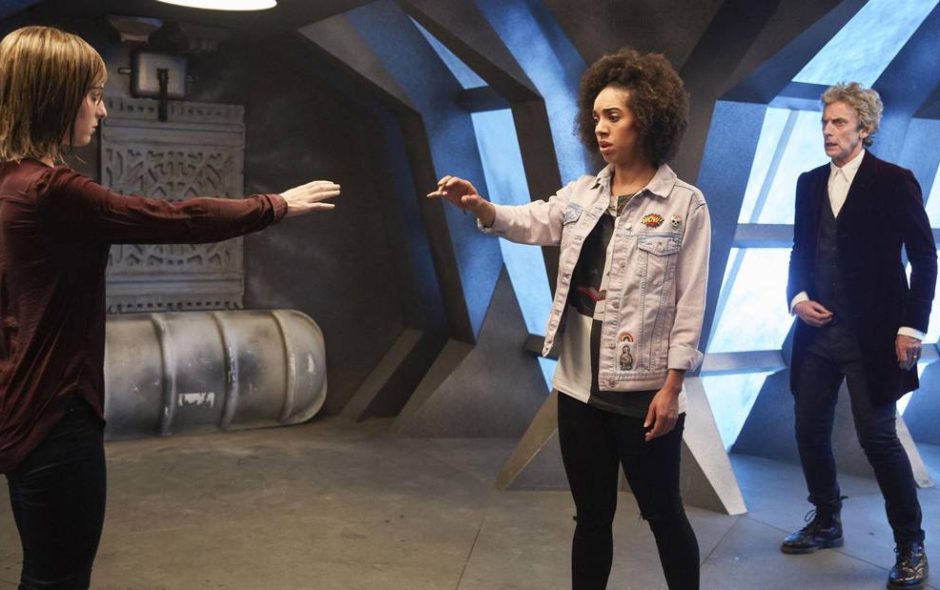It is the end of an era. At least, the end of one of many for Doctor Who, the cult sci-fi series that has dominated British television for decades. The original Doctor Who was on the air between 1963 to 1989, then came back in 2005 to the present, with a 1996 television film sandwiching the two editions.
That spirit of reinvention has defined the series since its humble beginnings as an educational program for children, when the original Doctor, played by William Hartnell, was replaced by a new actor so that the series could keep going. Since 1966, the conceit that the Doctor can shape-shift into a new body and personality has been built into the show’s DNA. Twelve actors have played the title character in the franchise’s television series.
For the past two seasons, Peter Capaldi has played the titular role. The upcoming 10th season of the series will be the last for the Scottish actor, who says it’s time to move on. But he won’t be the only key element leaving the show: This will also be the last season for showrunner Steven Moffat, who’s been at the creative helm since the fifth season in 2010.
Moffat has worked on the new edition of Doctor Who from the beginning in 2005, first as story writer. In his roles as both story writer and showrunner, his work has garnered him numerous awards from the likes of BAFTA, the Nebula Awards and the Hugo Awards. When asked what he’s most proud of as his term as showrunner, Moffat has a few different answers.
“I think I can maybe answer that in 10 years,” he says with a laugh during an interview in Toronto this past fall, before listing “obvious things” such as his casting choices, and highly ranked episodes such as the 50th-anniversary special The Day of the Doctor. Mostly, Moffat is just happy that the show is still on the air. According to him, previous showrunner Russell T Davies said the second edition of Doctor Who would only last a decade.
“But it’s gonna go past 10 years!” Moffat says. “From a fan point of view, we were right. The BBC should never have taken it off the air. Those 16 years were wasted.”
Moffat and Capaldi have both previously remarked how the opportunity to work on Doctor Who had been a lifelong dream, being fans from childhood. But for Capaldi, his professional relationship with a beloved show is a little more complicated. “I do think being a fan of the show is useful, because it’s sort of your bones,” Capaldi says. “Sometimes you find little moments [while working] that are very Doctor Who, but it’s difficult to put into words.”
While we’re on the subject of words, though, Capaldi is not a fan of the word “fan.”
“The people I meet who really like the show have an individual response to it. It’s a very intimate and special relationship that they have with it,” says the actor, perhaps best known for his work with satirist Armando Iannucci (The Thick of It, In the Loop). “Although many enthusiasts of the show can find a community, the word ‘fan’ makes it sound like they’re the same. And they’re not.
“I definitely have to not be a fan when I’m making it. Because that’s not my job,” he continues. “My job is to act the best way that I can, to make it entertaining and interesting. Those are adult, mature responsibilities – as much as an actor can be adult and mature.”
The 59-year-old’s role is certainly the most mature representation of the Doctor in terms of age. Capaldi’s interpretation of the Doctor was an attempt to contrast the previous incarnation – an approachable, warm chap played by Matt Smith – with “a graver, darker” personality. “The virtue of being this age is you have access to those areas,” Capaldi says.
But in the last season, the Doctor has loosened up some, weaving in Capaldi’s natural comedic flair. The 10th season may find the Doctor exploring new territory in terms of character development, as a new sidekick will be joining him. For the past two seasons, Jenna Coleman played Capaldi’s “companion,” Clara, but in the coming season, newbie Pearl Mackie will be taking over, playing the franchise’s first openly gay companion in the role of Bill Potts.
Mackie says acting a regular television role is a welcome contrast to the character development she’s done in her theatre work. “With theatre, the story’s there. Your character is what’s written and what’s implied. With television, one of the most interesting challenges is not having it all there. You’re always responding to what’s on screen and make it up as you go along.”
Like Capaldi and Moffat, executive producer Brian Minchin has been a Doctor Who fan since he was a child. The show’s a “perfect home” for him because of its emotional capacity. “It’s a place with great imagination. Almost everyone who works on the show has some affection for [Doctor Who]. No one sees it as just a job. They know what it can be,” he says. “And you dream of making it as special as it was when you were eight years old. That’s a big challenge.”

